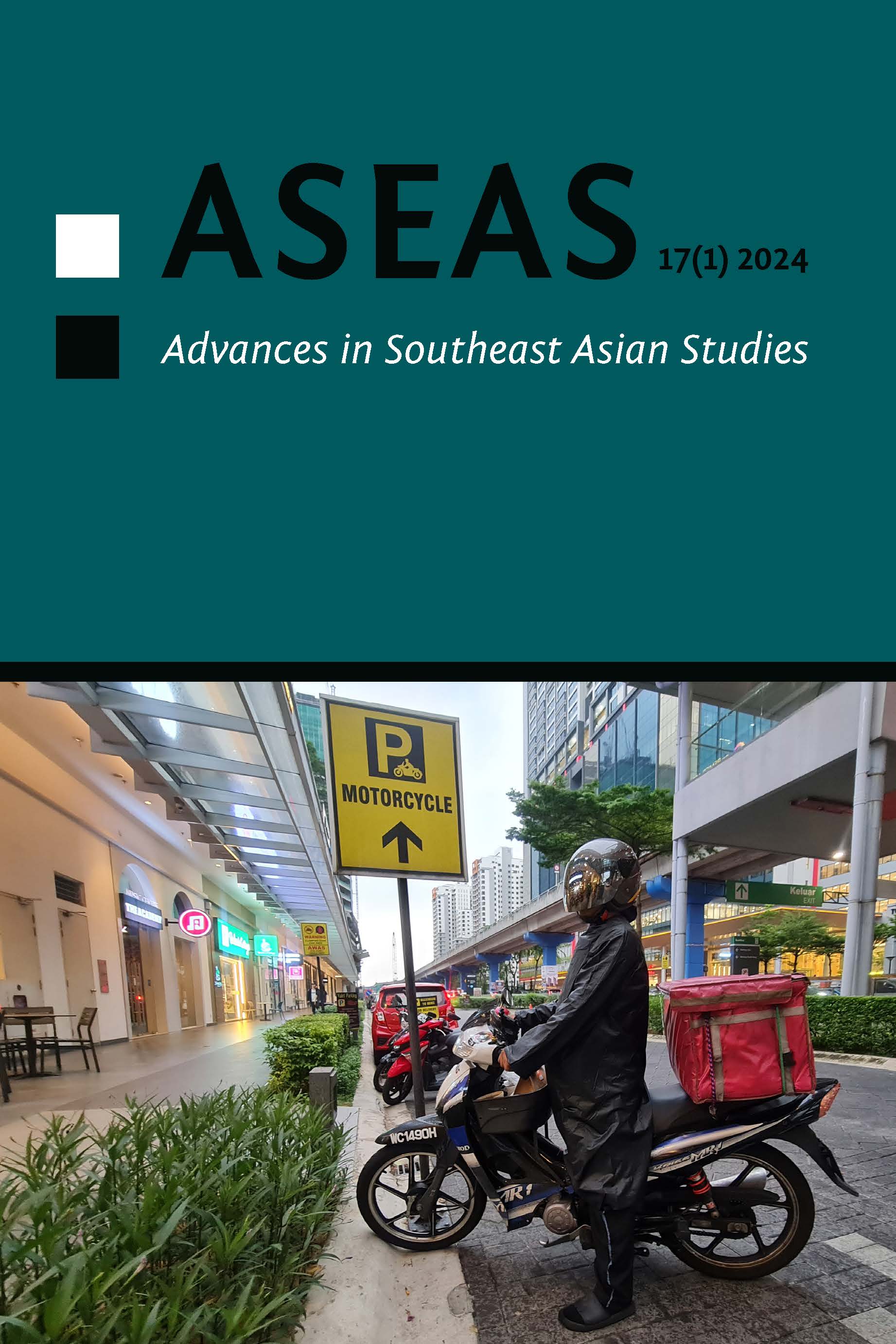Editorial: Researching Digital Platforms and Dynamics of Civic Space
DOI:
https://doi.org/10.14764/10.ASEAS-0109Keywords:
-Abstract
-
References
Anoraga, B. (2023). A decade of charitable crowdfunding and its impacts on the social justice trajectory of Islamic philanthropy in Indonesia. Advances in Southeast Asian Studies, 17(1), 5-24.
Bagalawis, C. N., Villanueva, R. M., & Katigbak, J. J. (2024). Press Freedom in the time of COVID-19: The Philippine experience under the Duterte administration. Advances in Southeast Asian Studies, 17(1),
-84.
Daniels, G. (2024). Navigating precarity: Health and safety challenges in Southeast Asia’s gig economy food delivery sector. Advances in Southeast Asian Studies, 17(1), 85-95.
Dewi, R. (2024). The paradox of Papuan recognition after two decades of special autonomy: Racism, violence, and self-determination. Advances in Southeast Asian Studies, 17(1), 25-44.
Einzenberger, R., & Schaffar, W. (2018). The political economy of new authoritarianism in Southeast Asia. Austrian Journal of South-East Asian Studies, 11(1), 1-12.
Fauzia, A. (2017). Islamic philanthropy in Indonesia: Modernization, Islamization, and social justice. Austrian Journal of South-East Asian Studies, 10(2), 223-236.
Hennings, A. (2016). Assembling resistance against large-scale land deals: Challenges for conflict transformation in Bougainville, Papua New Guinea. Austrian Journal of South-East Asian Studies, 9(1), 33-52.
Noviani, P., Manasikana, R. A., & Anggrahita, D. D. A. (2024). Digital intimacies and the construction of social capital in a heteronormative society: A study of dating app users in Indonesia. Advances in Southeast Asian Studies, 17(1), 45-61.
Pinkaew Laungaramsri. (2016). Mass surveillance and the militarization of cyberspace in post-coup Thailand. Austrian Journal of South-East Asian Studies, 9(2), 195-214.
Downloads
Published
Issue
Section
License
Copyright (c) 2024 Alexander Trupp, Dayana Lengauer

This work is licensed under a Creative Commons Attribution-NonCommercial-NoDerivatives 4.0 International License.
For all articles published in ASEAS before December 2014 and after July 2022, copyright is retained by the authors. For articles published between January 2015 and June 2022, the Society for South-East Asian Studies (SEAS) is the copyright holder. Articles published in ASEAS before December 2019 are licensed under the following Creative Commons License: Attribution-NonCommercial-NoDerivs 3.0 Unported. Articles published after that date are licensed under the following Creative Commons License: Attribution-NonCommercial-NoDerivs 4.0 International. In both cases, this means that everybody is free to share (to copy, to distribute, and to transmit the work) under the following conditions:
-
Attribution — You must give appropriate credit, provide a link to the license, and indicate if changes were made. You may do so in any reasonable manner, but not in any way that suggests the licensor endorses you or your use.
-
NonCommercial — You may not use the material for commercial purposes.
-
NoDerivatives — If you remix, transform, or build upon the material, you may not distribute the modified material.


